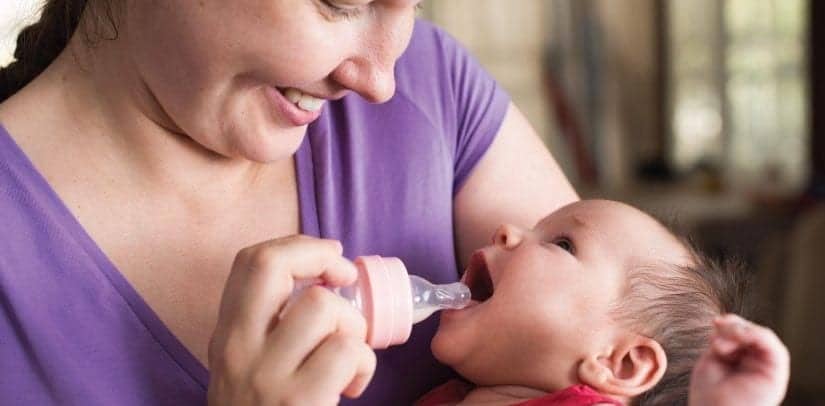According to the American Academy of Pediatric Dentistry, baby tooth decay is the single most common chronic childhood disease.
Baby’s teeth are important to your child’s overall oral health and bone development. Teeth help shape the face and assist in eating, chewing, and speaking.
Parents, you play an essential role in providing your child’s dental care, and with good home care, and regular visits to your pediatric dentist, baby bottle tooth decay (bottle rot teeth) is preventable. Let’s take a closer look.
What Causes Baby Tooth Decay?
While there are many factors that can cause baby tooth decay, the most common reason a baby experiences tooth decay is prolonged exposure to sugary liquids, formula, or breast milk.
When a child sleeps with a bottle filled with juice, formula, or other liquids that contain sugar, this increases the risk of baby bottle tooth decay. While asleep the production of saliva, which helps wash away sugar, slows down. Bacteria in the mouth turns the sugar into acids, which eats away at tooth enamel.
Early Signs of Baby Bottle Tooth Decay
Most often signs of baby bottle tooth decay occur in the front upper and lower primary teeth, but decay can become a problem in other teeth as well. You may notice your child has:
- Brown or white spots along the gum line
- Minor bleeding and swollen gums
- A fever
- Bad breath
Baby Bottle Tooth Decay Treatment
Baby bottle tooth treatment varies based on your child’s condition. At the earliest signs of a tooth decay, your child’s pediatric dentist can discuss a plan. In the early stages of decay, it may be recommended to do a fluoride treatment for the tooth’s surface. While there are treatments available, the greatest defense against tooth decay in babies is prevention methods.
Take these important steps to help prevent tooth decay:
- Clean baby’s teeth after bottle or breast feeding
- At night, fill your baby’s bottle with water or use a pacifier instead
- Schedule baby’s first dental check-up as soon as they get their first tooth, and visit us every six months to protect your child’s oral health.
Worried Your Child Has Baby Bottle Tooth Decay?
We’re here to help! If you’re concerned your child may have baby bottle tooth decay, schedule an appointment at one of our convenient locations. At Jenkins & LeBlanc we offer board certified pediatric dentists and dental cleanings provided by experienced registered dental hygienists. We’ll examine your child’s teeth, answer your questions about oral care, and schedule any necessary treatment.
Check out more frequently asked questions here.
